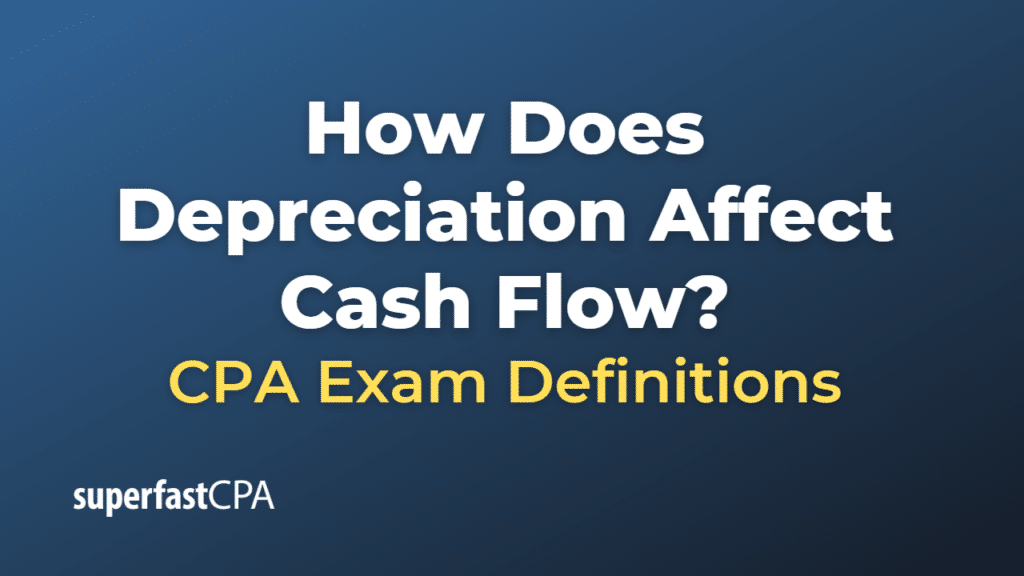How Does Depreciation Affect Cash Flow
Depreciation is a non-cash expense that represents the systematic allocation of the cost of a tangible asset over its useful life. While depreciation reduces a company’s net income on the income statement, it does not directly impact cash flow because it does not involve an actual cash outlay.
However, depreciation does have an indirect impact on cash flow, specifically on the cash flow from operating activities, in the following ways:
- Tax Impact: Depreciation reduces taxable income, which in turn reduces the taxes a company must pay. Since taxes are a cash expense, lower taxes increase cash flow. Therefore, through its impact on taxes, depreciation can indirectly increase a company’s cash flow.
- Cash Flow Statement Adjustment: When preparing the statement of cash flows using the indirect method, companies start with net income and then add back non-cash expenses, including depreciation. This is because these expenses decrease net income but do not impact cash. So, while depreciation does not directly affect cash flow, it is added back to net income in the cash flow statement to reflect that it does not use up cash, effectively increasing reported operating cash flows.
Remember, while depreciation is a non-cash charge, the purchase of the assets being depreciated was a cash outflow recorded in the investing activities section when the asset was originally purchased. The depreciation expense simply spreads this cost over the asset’s useful life.
Example of How Depreciation Affect Cash Flow
Let’s consider a hypothetical company, “Techy Toys”, which produces electronic toys.
Techy Toys buys a new machine for its manufacturing facility for $100,000. The machine has an expected useful life of 10 years, and the company uses straight-line depreciation. This means the machine’s cost will be spread evenly over 10 years, resulting in a yearly depreciation expense of $10,000 ($100,000/10 years).
On the income statement, this $10,000 annual depreciation expense reduces Techy Toys’ taxable income. If the corporate tax rate is 20%, the depreciation expense would result in a tax saving of $2,000 each year ($10,000 x 20%).
Now, let’s look at the cash flow statement. The company starts by reporting its net income, which has already been reduced by the depreciation expense. But since depreciation is a non-cash expense, it gets added back in the operating activities section. So, the cash flow from operating activities will increase by the amount of the depreciation expense, $10,000.
Here’s how it looks:
Income Statement:
- Revenue: $500,000
- Operating Expenses (including $10,000 depreciation): $300,000
- Taxable Income: $200,000
- Taxes (20%): $40,000
- Net Income: $160,000
Cash Flow Statement (using the indirect method):
- Net Income: $160,000
- Add back Depreciation: $10,000
- Cash Flow from Operating Activities: $170,000
So, even though depreciation does not directly involve any cash outlay, it impacts the cash flow by reducing the taxable income (leading to lower cash outflow for taxes) and by being added back to the net income in the statement of cash flows.













